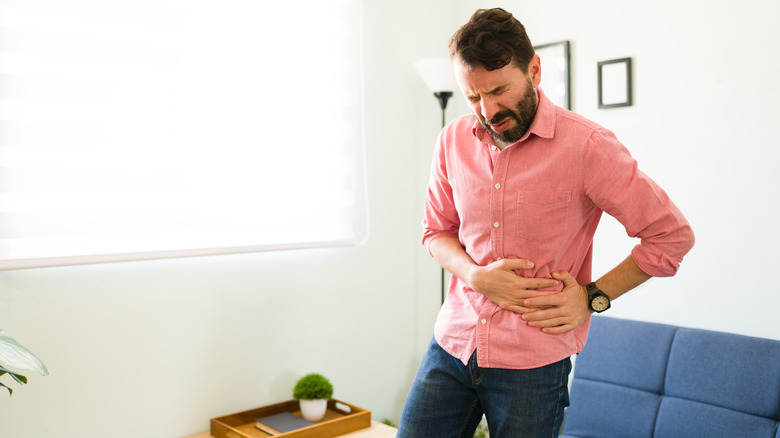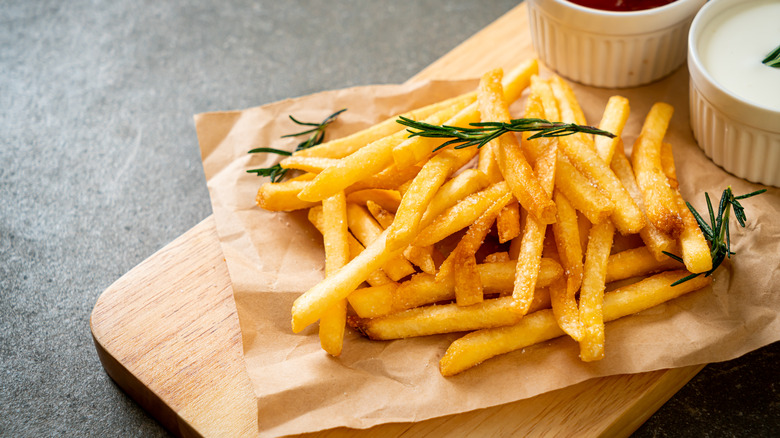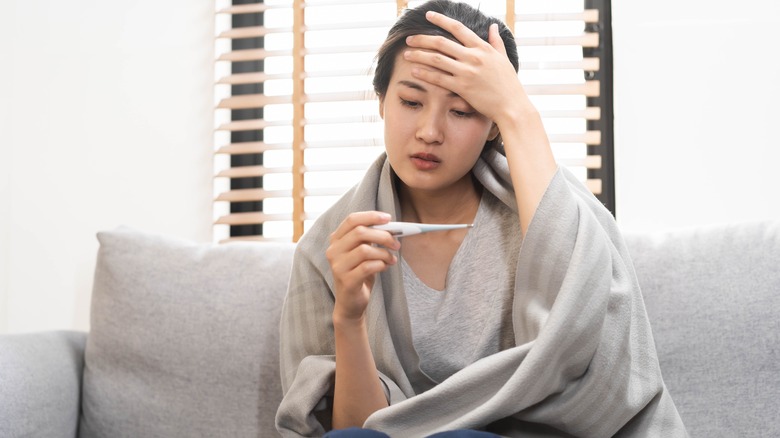What Sort Of Diet Should You Follow If You Have Gallstones?
Tucked below your liver, the gallbladder is a small organ with an important function to store and then release bile into the small intestine and aid digestion, as per the Cleveland Clinic. Produced by your liver, bile is key in helping to break down the fat in your meals. As you eat, the gallbladder slowly discharges bile into your small intestine, where it blends with your food and helps you digest.
Over time, depending on factors such as age, ethnicity, obesity, and gender, a person can form hard deposits of bile salts, cholesterol, and bilirubin can form, according to the Cleveland Clinic. Known as gallstones, these deposits can start small, and as more bile collects in the gallbladder, they begin to grow. In fact, some can grow as large as a golf ball and, if left unchecked, can cause an obstruction either in the gallbladder itself or elsewhere in the body. When this happens, depending on the severity of the stones, surgery may be necessary, which is when the gallbladder is removed. Your doctor may also recommend that you adjust your diet as well.
Fatty foods can spell gallbladder trouble
A high-fat, cholesterol-heavy diet is a recipe for gallstone formation, so it's essential to reduce the amount of fat you consume, trading fatty, processed foods for whole grains, legumes, and lean meats and fish. To combat gallstones, the National Institute of Diabetes and Digestive and Kidney Disease suggests a diet high in fiber and lower in carbohydrates and sugar. In addition, you can keep your gallbladder working properly by eating plenty of healthy fats and avoiding the unhealthy ones that tend to be found in sweets and fried foods.
After all, up to 75% of gallstones are made up of excess cholesterol, which makes cholesterol one of the main culprits to target when trying to minimize the impact of gallstones (via Cleveland Clinic). Because of this, patients with gallstones should avoid butter, cake, cream, and processed meats, like sausage. Deep-fried foods should also be avoided, according to a 2017 study published in the Journal of Health, Population, and Nutrition. In turn, the study showed that these foods are high in trans fats, which may raise the level of triglycerides in your blood.
Be on the lookout for signs of an attack
Typically, you won't know that something is wrong with your gallbladder until one of the stones actually becomes lodged somewhere in your body (per the Cleveland Clinic). When that does happen, however, the first thing you will typically feel is abdominal pain on your right side. Sometimes this pain is accompanied by nausea and vomiting, as well as other, more serious symptoms, such as fever, chills, and an accelerated heart rate. In extreme cases, bile can begin to build up in your bloodstream, leading to jaundice, sunken eyes, and dark urine. If you experience any of these symptoms at all, you should contact your doctor immediately.
If your gallbladder is taken out, you should continue to avoid high-fat, fried, and greasy foods immediately following. Plus, you should make sure you boost your fiber intake to jump-start your digestion process and get your body moving again. Because, in the absence of your gallbladder, bile is now draining directly into your intestines, it can act almost like a natural laxative. So, until your body gets used to the new process, you also may want to ease off on any food that could cause diarrhea, such as sweets, dairy, and caffeine. All in all, working with your doctor to find the best diet throughout your gallstone troubles will hopefully help minimize them in the long run.



